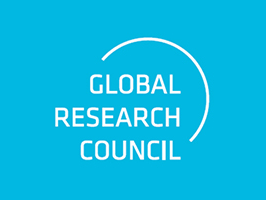International Networks and Organisations
The DFG is actively involved in international research policy. As well as being a member of various umbrella organisations and bodies, it supports scientific and academic societies in Germany in their membership of international networks.
The major German science and research funding organisations are represented on the Committee for the Coordination of International Academic Relations (AKA). The purpose of the committee is to
- facilitate informal discussion on current developments in international cooperation,
- develop ideas for joint strategies,
- coordinate the international activities of member organisations,
- serve as a platform for joint initiatives (e.g. European Charter for Researchers, Code of Conduct, etc.).
The AKA is a staff-level working committee of those responsible for international relations at the German science and research funding organisations. The committee meets twice a year and presents an established information network open to lively exchange with any institution involved in international academic relations. AKA members are particularly interested in continuous information-sharing with the cultural and academic relations officers at German and foreign embassies. The AKA’s secretariat is run by the Humboldt Foundation.
The member organisations of AKA are:
- Alexander von Humboldt Foundation (AvH)
- Fraunhofer-Gesellschaft(FhG)
- Fulbright Commission
- German Academic Exchange Service (DAAD)
- German Council of Science and Humanities (WR)
- German National Academy of Sciences Leopoldina
- German Rectors' Conference (HRK)
- Deutsche Forschungsgemeinschaft (DFG, German Research Foundation)
- Helmholtz Association of German Research Centres (HGF)
- Leibniz Association (WGL)
- Max Planck Society (MPG)
- Max Weber Foundation
- Volkswagen Foundation
For some time now, the international scientific community has been discussing the future of research assessment. The aim is to focus more on content and resort less to quantitative metrics such as the H-index or the journal impact factor when assessing proposals, applications and manuscripts. In addition, other achievements by researchers are to be recognised in addition to subject-specific papers – such as the creation of research software, the curation of data and many other such activities.
The DFG is among those to have joined the international Coalition for Advancing Research Assessment (CoARA), which was established with a view to initiating and shaping this cultural change in research assessment. Its member organisations – including research institutes, universities, research funding agencies and associations – are looking to share ideas regarding concrete reform measures in the coming years.
- CoARA homepage: www.coara.e(externer Link)
- Contact at the DFG Head Office: coara@dfg.d(externer Link)
ECORD is an association of 17 European countries and Canada with the aim of participating in the IODP (International Ocean Discovery Program) with its own expeditions. The DFG pays the German annual membership fee in order to enable scientists at universities in particular to participate in IODP expeditions.
- ECORD website: www.ecord.or(externer Link)
- DFG contact: Dr. Guido Lünige(externer Link)

The GRC is a voluntary, informal grouping of the heads of research councils from all over the world. It was set up in 2012 in Washington, D.C. as part of the "Global Summit on Merit Review", which was organised by the US organisation, the National Science Foundation (NSF). The former Director of the NSF, Dr. Subra Suresh, and Professor Dr.-Ing. Matthias Kleiner, who was President of the DFG at the time, were instrumental in the GRC's foundation.
It represents the majority of public research and research funding bodies which do not receive direct governmental funding and acts to strengthen international collaboration on research and between research funding organisations. Through regular preparatory conferences in different parts of the world and its annual meeting, it offers a forum in which current issues arising from the globalisation and internationalisation of science and the humanities and research and their funding can be discussed. The outcomes of these discussions are then used to formulate joint recommendations.
- GRC website: https://globalresearchcouncil.or(externer Link)
- DFG contact: Dr. Marcus Wilm(externer Link)
GRC-Governing Board
The DFG has long been active in the Global Research Council. For example, the adoption of the GRC bylaws at the 2013 annual meeting in Berlin with former DFG President Professor Dr. Peter Strohschneider marked an important milestone for the organisation. DFG President Professor Dr. Katja Becker is co-chairing the GRC Governing Boar(externer Link).
Annual Meeting of the Global Research Council
The regional conferences and annual meeting(externer Link) also provide a platform for sharing experiences and best practices that can help newly developing systems to establish new structures and processes.
The International Science Council (ISC(externer Link) is a non-governmental organisation with a global membership that brings together 40 international scientific alliances and more than 140 national and regional scientific organisations, including academies and research councils. The ISC was established in 2018 as a result of a merger between the International Council for Science (ICSU) and the International Social Science Council (ISSC).
Knowledge Exchange is a joint initiative of the DFG, CS(externer Link) in Finland, CNR(externer Link) in France, Dei(externer Link) in Denmark, Jis(externer Link) in the UK and SUR(externer Link) in the Netherlands which is dedicated to infrastructural issues in the area of Open Access and Open Scholarship.
- Website Knowledge Exchange: www.knowledge-exchange.inf(externer Link)
- DFG contact:
Science Europe is an association of the most important research and funding organisations in the field of basic research in Europe; it is based in Brussels and was founded in 2011. The priority objective of Science Europe is to represent the science-driven concerns and interests of basic research in the further development of the European Research Area (ERA) through direct cooperation with key partners. Based on the competencies of its members, Science Europe therefore seeks to strengthen the cooperation between them and in particular act as the third force in science – alongside the European Commission and the Member States in the European Research Area.
- SE website: www.scienceeurope.or(externer Link)
- DFG contact: Dr. Priya Bondre-Bei(externer Link)